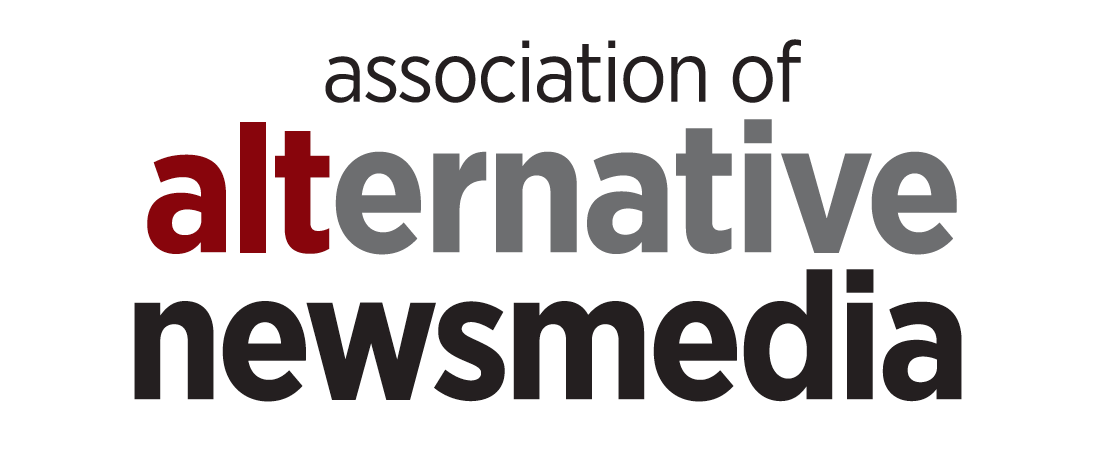![]()
AAN is one of seven media organizations who joined an amicus brief filed by the Florida Press Association in support of a First Amendment challenge to a Florida law restricting the types of publications which can be distributed to prisoners. Specifically the law says that inmates in the Florida penal system can receive and possess publications unless certain criteria are met. For our purposes, the relevant reasons for exclusion are:
- The publication contains an advertisement promoting any of the following where the advertisement is the focus of, rather than being incidental to, the publication or the advertising is prominent or prevalent throughout the publication.
- Three-way calling services;
- Pen pal services;
- The purchase of products or services with postage stamps; or
- Conducting a business or profession while incarcerated.
- The publication otherwise presents a threat to the security, order or rehabilitative objectives of the correctional system or to the safety of any person.
Prison Legal News challenged the regulations in the U.S. District Court for the Northern District of Florida after its publications were rejected by the Florida DOC. PLN argued that its First Amendment right to freedom of speech and of the press was being violated by the Florida DOC’s refusal to deliver PLN to inmates and that its Fourteenth Amendment right to due process was being violated because the Florida DOC does not provide PLN notice and the right to be heard when delivery of PLN to an inmate is rejected.
After the District Court issued a ruling that struck down the rule on one, but not both, rationales, each party appealed to the United States Court of Appeals for the Eleventh Circuit. That’s where we entered. Our brief argues:
- There are decisions from the 11th Circuit which set a clear standard regarding the First Amendment rights of both prisoners and the public and press that seek access to prisoners. In fact, in a 1987 case, the Supreme Court created a standard requiring lower courts to consider: (1) whether a valid, rational connection exists between the regulation and a legitimate and neutral governmental interest to justify it; (2) whether alternative means of exercising the right are available; (3) how accommodation of the asserted constitutional right impacts guards and other inmates and the allocation of prison resources generally; (4) whether ready alternatives are available to the prison for achieving the governmental objectives. If the connection between the written regulation and the stated interested behind the regulation is arbitrary or irrational, the regulation will clearly violate the First Amendment; the court only moves on to the next three if this first threshold is met.
- In this case, the rule serves no legitimate function within the prison system. It simply restricts prisoners from viewing advertising for a service they cannot use anyway, resulting in their inability to receive PLN and other publications (perhaps some of our members’ publications that advertise similar services). In any event, all other factors all support a First Amendment challenge as well. For instance, the regulation doesn’t leave any other means for a publication to exercise its right to free expression, other than to create a separate ad-free edition or review and redact individual advertisements by hand. On the other hand, it would not be difficult for DOC guards to review publications and even excise offending content before delivering to an inmate. After all they already monitor all mail anyway.
- On the procedural side, the regulation does not provide a reasonable opportunity to challenge an adverse decision. The Supreme Court has also spoken in this area, requiring (1) that an inmate to be notified of the rejection of material written by or addressed to him, (2) that the author of the material be given a reasonable opportunity to protest the decision, and (3) that complaints be referred to a prison official other than the person who originally disapproved the correspondence. Not only weren’t these met, but no procedural safeguards exist at all. That’s a particular problem here, where the regulations in question are rather vague. Many of the terms allowing for a publication to be censored (like “pen-pal servicesâ€, “three way calling services†or “conducting a business or profession†are not defined in the statute. In addition, these advertisements are only banned if they are not focal, non-incidental, prominent or prevalent, none of which are easily defined and all of which are highly subjective.
We felt this case holds particular importance for AAN members, especially because the Florida regulations may not be all that unique. If the advertising of services like those identified in the Florida DOC regulation would result in rejection of a publication, then it seems as though many AAN member papers will be rejected under this Florida rule – and similar rules – on a regular basis. One would imagine that any publication with advertisements for goods like firearms, alcohol or legalized marijuana or services like gambling, personal ads or adult ads would be immediately flagged.
In addition, the procedural arguments will resonate regardless of the individual state law – there should always be an opportunity to appeal an adverse decision, especially where a law is going to be inconsistently applied. Further, the vagueness of the regulations is also somewhat troubling given that the same arbitrariness is often found outside the prison context (a prominent example being newsrack ordinances). This is an important case that bears watching no matter where you are located.

